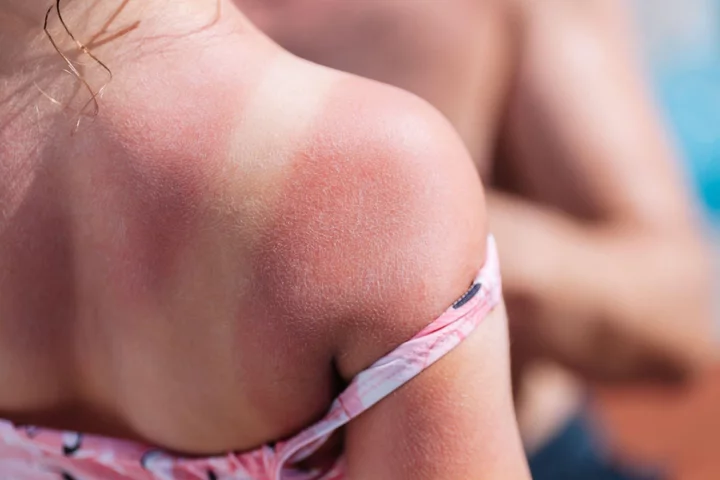
Bank holiday heatwaves predicted: 6 sunburn myths that could put you at risk
After a largely disappointing spring, the bank holiday weekend is set to bring with it the warmest weather of the year so far. Temperatures are predicted to go as high as 24C on Saturday and Sunday, according to the Met Office, with dry and sunny weather expected to last into next week. Many of us will be heading out to enjoy the sunshine – but as ever, it’s important to protect your skin from harmful UV rays. When it comes to tanning and sunburn, there are a variety of misconceptions that still abound, and the consequences of not following sun protection advice can be severe – especially as skin cancer rates across the UK have been rising, charities have warned. Here are five sunburn myths that could be putting your health at risk… 1. The UK and Irish sun isn’t strong enough for sunburn We might grumble about the gloomy weather in our part of the world, but the risk of sunburn remains for a large part of the year. “The sun can be strong enough in the UK between mid-March and mid-October to burn you,” says Karis Betts, senior health information manager at Cancer Research UK, which is working in partnership with Nivea Sun to educate consumers on how to be sun safe. “You’re most likely to get burnt in the middle of the day, when the sun is at its highest point, not necessarily its hottest.” UV rays are generally strongest between 11am and 3pm, she says: “It’s wise to take a break in the shade or indoors during these hours. And remember, you can burn through clouds.” 2. You have to go red before you go brown Our complexion can turn darker in the sun due to the release of melanin as the skin attempts to protect itself, but that doesn’t mean you need to turn lobster-red first in order to try and get a tan. “This is one of the biggest myths in sun protection, and it contributes to skin damage and skin cancer cases,” says Abi Cleeve, MD of Ultrasun UK. “The fact is that as soon as the skin reddens, it’s in trauma. A ‘trauma tan’ occurs from inadequate protection where the skin appears to tan more quickly, but hasn’t – it has burned. This only ensures that the skin peels, leaving the skin tan-less in days.” To avoid this pattern, Cleeve recommends gradually building up your time in the sun, and using higher SPF sunblock: “Use high UVA and UVB filter SPF – a minimum of SPF30 with a UVA filter over 90% will protect the skin and still tan, just more slowly [and] minimising long-term damage and peeling.” 3. The odd sunburn doesn’t make a difference It’s easy to get caught out by a sudden blast of sunshine, but don’t be fooled into thinking that one instance of sunburn here and there doesn’t matter. “This is something I hear a lot but unfortunately, it’s just not true,” says Betts. “Damage to our skin from the sun is the number one cause of melanoma, the most serious type of skin cancer, and skin damage from the sun builds up over time – it doesn’t go away after the burn fades.” That’s why wearing sunblock is crucial – even more so for children. According to the Skin Cancer Foundation: “Even one blistering sunburn in childhood or adolescence more than doubles your chances of developing melanoma later in life”. 4. People with darker skin don’t get sunburnt “Anyone can get sunburnt – including people with darker skin – but your risk of getting sunburnt and how sunburn feels will depend on your skin type,” says Beth Vincent, health information manager at Cancer Research UK. “For people with lighter skin tones, sunburned skin is usually red, sore, and swollen. In people with darker skin tones, sunburned skin might not change colour but will often feel irritated, itchy, tender and sore.” While people with lighter skin tones are generally at higher risk of sunburn and skin cancer, you should still use sunblock if you’ve got darker skin or a tan. In terms of sunscreen for darker skin tones, Betts recommends: “At least SPF15 and four or five stars [for UVA protection]. Make sure to reapply it regularly and generously, especially after swimming, sweating or towelling.” 5. All body parts are created equal when it comes to sunscreen “Burning – overexposure to UVB rays – tends to happen where the skin is closer to the bone structure, and especially where the part of the body faces directly the sun’s rays,” says Cleeve. “Tops of feet, shoulders, décolleté, top of the scalp and the nose – take extra care in these areas.” Other easy-to-miss areas include the scalp or parting, ears, areas around swimwear such as straps, and shorts that might move or rise up through the day. Cleeves top tip for all-over protection? “Do your sun cream naked! Then any movement in straps, shorts won’t suddenly bare unprotected skin to the sun’s rays.” 6. Aftersun products repair the damage done by sunburn “No, they don’t,” says Vincent. “While aftersun products may soothe the unpleasant symptoms of sunburn, they won’t fix any damage that was done to the DNA inside your cells.” If you do start to notice signs of burning, cover up or get out of the sun as soon as possible, she warns: “Don’t spend more time in the sun that day – even with sunscreen. And don’t rely on aftersun to fix the damage, because it can’t.” Read More Charity boss speaks out over ‘traumatic’ encounter with royal aide Ukraine war’s heaviest fight rages in east - follow live Dame Esther Rantzen faces stage four lung cancer: key facts about the disease Camilla receives ‘beautiful’ compliment after meeting children at historic library 7 foods that could help you get better sleep
2023-05-26 19:57
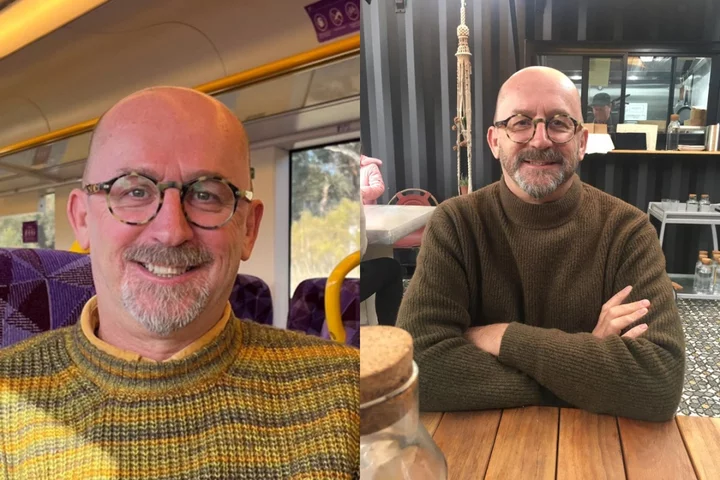
Australian man’s DNA test reveals he’s related to Kate Middleton: ‘We both have smashing smiles!’
An Australian man, who discovered he is a distant relative of the Princess of Wales through an AncestryDNA test, has said they both have the same “smashing smiles” and “great dress sense”. David Willis, 54, a union organiser, who lives in Avenel in Victoria, Australia, with his partner of 18 years, Rodney Kendall, 52, found out, in 2017 after doing the DNA test, that he is Kate’s fourth cousin once removed through his mother’s working class family from Durham in the UK. David, whose friends now call him a “queen”, has also tracked down a fourth cousin in Durham who he speaks to regularly via email – he hopes to one day meet her in person, and joked he might “extend (his) invitation to Kate”. But, despite the genetic evidence, David’s mum “still won’t believe him”, as she “always understood (their) roots to be working class”, but his cousins “are loving” the royal connection. On David’s father’s side, he has discovered that “they were a boat full of convicts”, so he now likes to jokingly refer to himself as “Kate’s convict cousin”. “I thought, what do Kate Middleton and I have in common? We both have smashing smiles, great dress sense and we’re distant cousins,” David said. “I have blue blood – my friends call me a queen – I truly am!” David began researching his family history more than 20 years ago, he explained: “I’m a bit of an amateur historian. “When Ancestry started – I’ve been involved for probably 18 to 19 years – I was able to access materials, resources and documents that in the past I would have had to have travelled to England to gain access to, so I was able to do that all online. “I researched my family on both sides, and that’s when it came up with an interesting connection.” In 2017, it appeared as if Kate was on David’s family tree, he said: “No one believed me – I had to double check the paperwork, and I thought what better way of doing it than testing my DNA through Ancestry. “I was able to just submit my DNA to finally prove and say to everybody that I got my research right.” It was confirmed that David’s mother’s working class family, from Durham in the UK, had links to Kate – they are fourth cousins once removed. David explained their connection: “We share a common ancestor, and we’re fourth cousins once removed. “We go back six generations and Kate goes back seven to our common ancestor, Jane Conyers, who was the daughter of a fellow called Sir Thomas Conyers, the ninth Baronet of Horden. “But, because he had three girls, the title died off with him and they married the local folk in the town. “So one of those girls was called Isabella, and her sister was called Jane. “About six generations ago, when my family sort of fell out of royalty with Sir Thomas, the rest of them were working in the coal mines – I find that fascinating stuff.” David has also discovered a third cousin, the daughter of his great-grandfather, who lives in Durham. He said: “We’ve actually been talking by email for probably one and a half years now, every couple of weeks. “She’s all excited about our family’s story. “And she did her DNA test too, and she’s definitely also related to Kate.” David explained how his family in Australia feel about being related to Kate: “My mother just doesn’t want to know – she doesn’t believe it because our family were always understood to be very working class. “Our family comes from Durham in the north, and my grandfather and his mother emigrated to Australia, after World War One, when my great-grandfather was killed. “He was a coal miner from Newcastle upon Tyne, so my family escaped poverty by moving to Australia, and we just always understood our roots to be working class. “So when there was a bit of a royal connection I don’t think we quite knew how to feel. “Mum still won’t believe me, but my cousins are loving it.” David explained how it feels to have a link to the current royal family: “I’m not a massive royalist by any means, because, in Australia, we’re a few steps removed. “But having said that, I still have a fascination with UK culture – I watched every bit of the coronation for example.” David explained the stark contrast between his mother’s and his father’s side of the family: “On my mum’s side we have sirs and Kate Middleton, but on my dad’s side, on the other side of the world, they were a boat full of convicts, so I joke that I’m Kate’s convict cousin!” Looking to the future, David hopes to meet some of his closer relatives in the UK, he explained: “I’d love to meet the cousin I’ve been emailing and have a trip to Durham. “Maybe I’ll also extend my invitation to Kate and see if she fancies joining!” Read More Kate Middleton sticks to royal protocol after fan asks for an autograph: ‘I can’t write my name’ ‘I did a DNA test and found out I had 7 siblings I didn’t know about’ Kate Middleton has touching response after child asks what it’s like to be a princess Charity boss speaks out over ‘traumatic’ encounter with royal aide Ukraine war’s heaviest fight rages in east - follow live
2023-05-26 18:57

Factbox-How Americans plan to travel this Memorial Day
The upcoming Memorial Day weekend is expected to see millions of Americans travel despite tight budgets, kicking off
2023-05-26 18:53
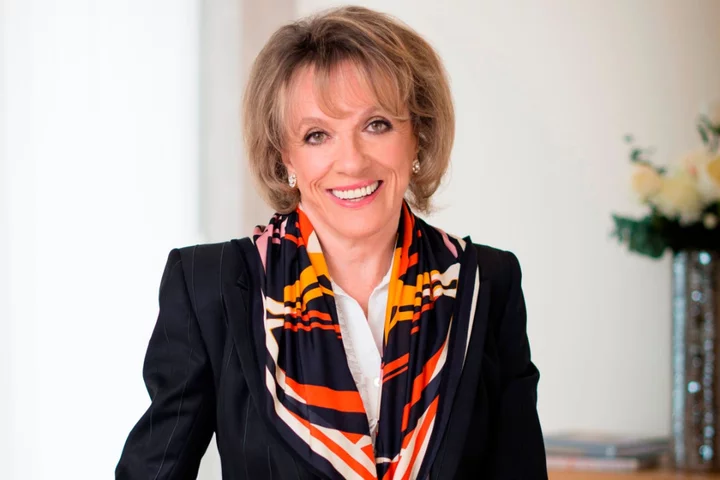
Dame Esther Rantzen faces stage four lung cancer: key facts about the disease
Dame Esther Rantzen has revealed that her lung cancer has progressed to stage four, after previously announcing in January that she had been diagnosed with the disease. The Childline founder and broadcaster told The Mirror that “nobody knows” if the new medication she is trying is working and a scan “will reveal one way or another”. Earlier in the year, Rantzen, 82, said she had “decided not to keep this secret any more because I find it difficult to skulk around various hospitals wearing an unconvincing disguise” and was “remaining optimistic”. Stage four is when cancer has spread from where it started to another body organ, according to Cancer Research UK, and is also called secondary or metastatic cancer. More than 43,000 people are diagnosed with lung cancer every year in the UK, according to the NHS, making it one of the most common forms of cancer – yet the disease is often shrouded in myths and misconceptions. So, what do you need to know? Here are some important facts about lung cancer… 1. Lung cancer can affect people of any age According to John Costello, a pulmonologist at the Mayo Clinic: “Lung cancer is certainly more common in older people – the average age of diagnosis is 70 years.” This does not mean it only ever affects older age groups, however. Lisa Jacques, lead specialist cancer nurse at Perci Health, says: “Most people develop lung cancer in their 60s and 70s, after many years of smoking, but occasionally people get lung cancer at a much younger age, even in their 20s and 30s.” 2. Lung cancer is not always caused by smoking Although smoking can certainly increase your chances of developing lung cancer, it is not the only cause. “Smoking is the cause of most lung cancers and the biggest risk factor, but about 10% of people who get lung cancer have never smoked,” explains Jacques. Costello adds: “There are some lung cancers which are genetic and may not be smoking-related, and some others are caused by exposures to substances like asbestos, radon gas and passive smoking” – although he says these are “relatively uncommon”. 3. Stopping smoking can help protect you Costello says: “Some of the damage and inflammation caused by smoking can be reversible, but in particular, emphysema is architectural destruction of the lung which causes extreme breathlessness and cannot be reversed.” So quitting smoking might reduce your risk and is always worthwhile for your health – but not starting the habit at all is much better. Speak to your GP if you would like support with quitting. 4. Lung cancer is not always deadly A diagnosis of lung cancer does not always mean certain death, but it is still serious. “Lung cancer has a 65% survival rate for five years in people with localised disease,” says Costello. “If it has spread around the body at the time of diagnosis, the survival rate is only 8%.” However, he says there are “new techniques in screening for lung cancer, such as CT scans in smokers over 50 years with a serious tobacco background”. These “may pick up very small early tumours, which can be removed with up to an 80-90% five-year survival rate”. So if you have concerns about a persistent cough, which is one of the key warning signs, see your GP and get it checked out as soon as possible. 5. Men are more likely to get it but women still need to be aware According to Cancer Research UK, men are more likely to get the disease than women (52% of lung cancer cases are men, compared to 48% of women). However, these margins are small, and women absolutely do need to be aware of lung cancer as well. “Lung cancer has been an increasing problem in women since they caught up with men in terms of smoking habit, and they are therefore at risk if they smoke, and some of the non-smoking related lung cancers are more common in women,” says Costello. Jacques adds: “It is the third most common cancer in the UK, and in women it is the second most common cancer type.” So, whether you smoke or not, look out for the symptoms of lung cancer – like a cough lasting longer than two or three weeks, recurring chest infections, breathlessness or aches and pains when breathing – and see your GP if you have any concerns. Read More Charity boss speaks out over ‘traumatic’ encounter with royal aide Ukraine war’s heaviest fight rages in east - follow live Camilla receives ‘beautiful’ compliment after meeting children at historic library 7 foods that could help you get better sleep Household energy bills set to fall from July: 7 ways to help keep bills as low as possible
2023-05-26 18:45

Japan Association for Cellular Agriculture convenes key stakeholders for “Made in Japan” or “Wagyu-like” cultivated meat, in response to Japan PM Kishida’s intention to promote the industry
TOKYO--(BUSINESS WIRE)--May 26, 2023--
2023-05-26 18:28
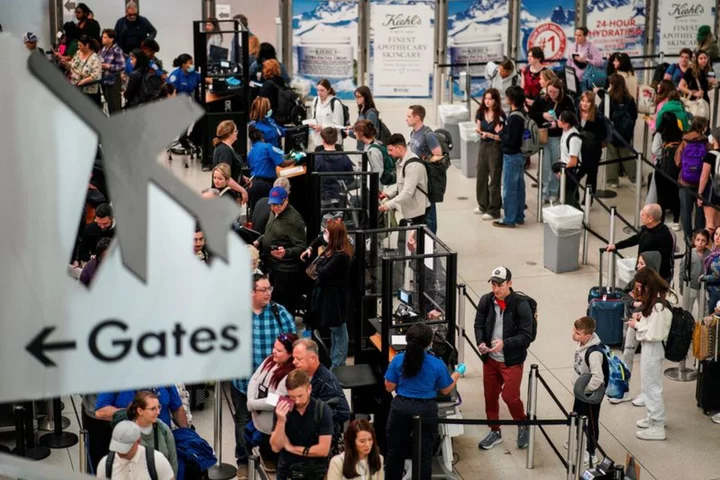
Analysis-US Airlines gear up for 'Super Bowl' of travel season
By Rajesh Kumar Singh, Doyinsola Oladipo and David Shepardson After two successive summers of travel chaos, U.S. airlines
2023-05-26 18:27
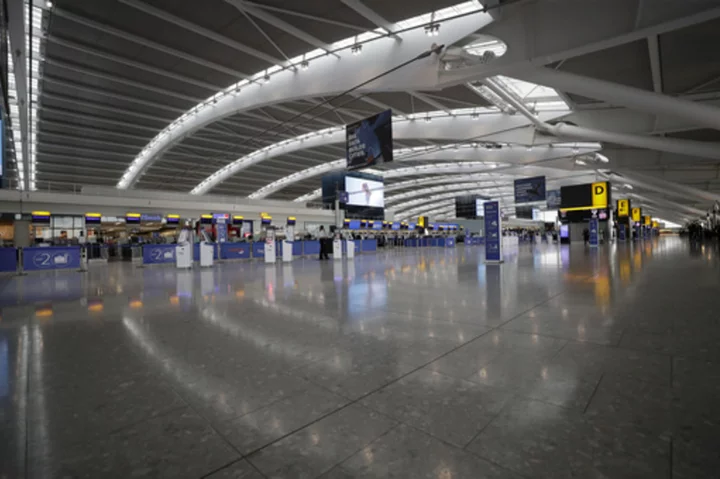
BA cancels dozens of flights over computer problems ahead of busy holiday weekend
British Airways has canceled dozens of flights due to computer problems
2023-05-26 16:53
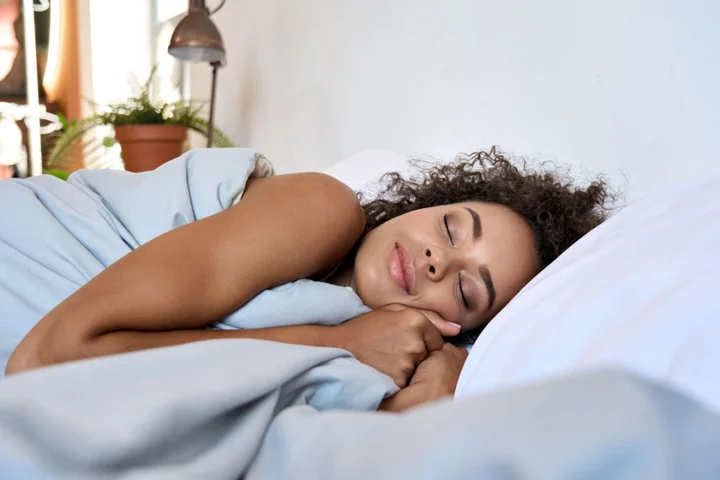
7 foods that could help you get better sleep
Wondering whether certain foods can affect your sleep patterns – or if eating certain things could actually help improve your sleep? The relationship between diet, sleep and overall health is two-sided, says Gabi Zaromskyte, registered nutritionist and founder of Honestly Nutrition. “Meaning what we eat and drink affects our sleep, but also, the quality and duration of sleep can affect our food choices,” Zaromskyte explains. “Scientific research has increasingly shed light on the significant impact of dietary choices on cognitive function, mood, and overall physical and mental health,” she adds. Certain dietary patterns and specific nutrients have been found to influence the sleep-wake cycle, sleep latency (the time it takes to fall asleep), and sleep architecture (the different stages of sleep), notes Zaromskyte. She continues: “And the quality and timing of our food and beverage intake can impact the production of sleep-regulating hormones, such as melatonin, which plays a critical role in regulating our sleep-wake cycle.” However, as Dr Maja Schaedel, co-founder of The Good Sleep Clinic points out, it’s important to understand that most research done so far shows that even though certain foods may be higher in melatonin, that does not necessary equate to falling asleep quicker. “You may have higher levels of melatonin, but if you’ve got stuck in a bad habit of tossing and turning for two hours before drifting off, or waking at 3am and not being able to return to sleep, foods high in melatonin are not going to solve your problem,” says Schaedel. She suggests that generally, it’s best to eat your evening meal at least two hours before bed, to avoid any indigestion, spikes in blood sugar and increase in body temperature that can occur while digesting. “If you tend to get peckish later in the evening, then plan a snack an hour or two before bed,” Schaedel adds. “It’s best to have something high in protein, like Greek yoghurt or nuts, and low in complex carbohydrates to avoid any spikes and falls in blood sugar.” Also, it might be wise to avoid the usual culprits which can trigger discomfort. “Fatty and spicy foods can cause heartburn and indigestion which can hinder good sleep, as well as alcohol, caffeine and tobacco,” says Lisa Artis, deputy CEO of The Sleep Charity. Here, experts share their go-to foods for supporting healthy sleep… 1. Cheese “Cheese gets a bad reputation as it’s commonly believed to give us nightmares, but actually it’s the opposite,” says Artis. “Cheese, and other dairy products, contain tryptophan, an amino acid which helps us to nod off more easily, and calcium which helps to reduce stress.” 2. Cherries To find out if foods with naturally occurring melatonin make a difference for you, Artis suggests giving cherries a go – particularly tart cherries, which have been found to naturally boost the production of melatonin. Zaromskyte says several studies have shown significant improvements in sleep quality and duration when consuming Montmorency cherries or tart cherry juice, where the concentration of naturally occurring melatonin and phytochemicals is higher compared to whole cherries. 3. Low sugar cereals “Cereal can also help us to sleep – but we must be mindful of the type of cereal,” says Artis. “There are lots of sugary options on the market, so try to avoid these.” She says complex carbohydrate-rich foods increase the availability of tryptophan in the bloodstream which, in turn, may help us to nod off. 4. Bananas Bananas are an excellent source of magnesium, potassium and tryptophan, says Artis. In other words, a great choice when it comes to supporting sleep. “While bananas have lots of great qualities for sleep, all fruit contains sugar too, so be mindful of this in the run up to bedtime,” she notes. “Try blending one banana with one cup of milk or soya milk to make an ideal evening drink.” 5. Almonds “Almonds are a brilliant source of calcium and magnesium, which promotes both sleep and muscle relaxation,” says Artis. “Magnesium also helps to regulate melatonin levels and keep blood sugar levels stable overnight.” 6. Magnesium rich foods Magnesium, an essential mineral, has been found to play a crucial role in sleep regulation – and can influence sleep quality and duration, says Zaromskyte. “It acts as a co-factor in more than 300 enzymatic reactions in the body, including those involved in the production and regulation of neurotransmitters and hormones that impact sleep.” Some magnesium-rich foods cited to help improve sleep quality include pumpkin seeds, spinach, almonds and dark chocolate (which is packed with health-enhancing antioxidants too). 7. Omega-3 rich foods Although research is limited, some evidence suggests foods rich in omega-3 fatty acids may promote better, longer sleep, says Zaromskyte. “For example, walnuts are a source of melatonin and other sleep-regulating compounds, such as an amino acid tryptophan and omega-3 fatty acids,” she says. “Other omega-3-rich foods include oily fish, like salmon, trout, mackerel and sardines, chia seeds and flaxseeds.” Read More Charity boss speaks out over ‘traumatic’ encounter with royal aide Ukraine war’s heaviest fight rages in east - follow live Household energy bills set to fall from July: 7 ways to help keep bills as low as possible Queen of Rock ‘n’ Roll Tina Turner’s most iconic looks 11 stylish ways to kit out kids’ bedrooms
2023-05-26 15:24
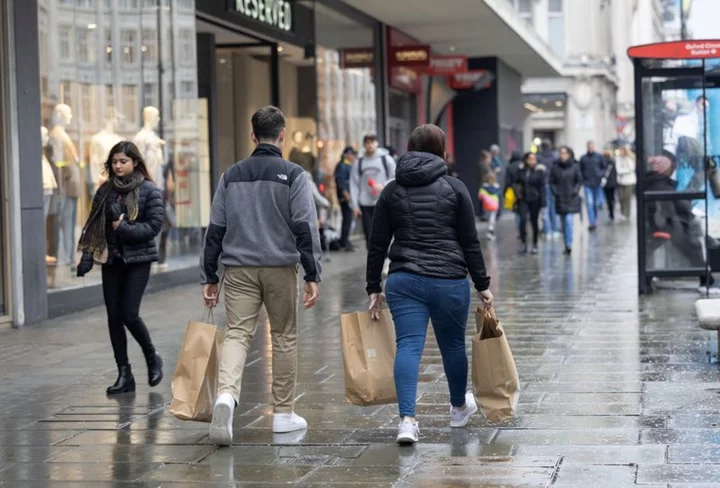
UK shoppers boost spending despite inflation's bite
By William Schomberg LONDON (Reuters) -British consumers picked up the pace of their spending last month and sales volumes over
2023-05-26 15:23

Indiana medical board reprimands doctor who publicly discussed providing abortion services to 10-year-old Ohio rape victim
An Indianapolis doctor who publicly revealed she provided abortion services to a 10-year-old Ohio rape victim last year has been reprimanded and fined by Indiana's medical licensing board after it determined the disclosure violated federal and state patient privacy laws.
2023-05-26 15:17

German Football’s Nein to Private Equity Leaves Bundesliga Adrift
German football fans are gearing up for a dramatic showdown this weekend, when the Bundesliga title race will
2023-05-26 14:47

What to watch this weekend: ‘Succession’ finale, John Wick, Matchbox Twenty, 'American Born Chinese'
Sure, lots of folks are eagerly anticipating this Sunday’s “Succession” finale
2023-05-26 12:28
